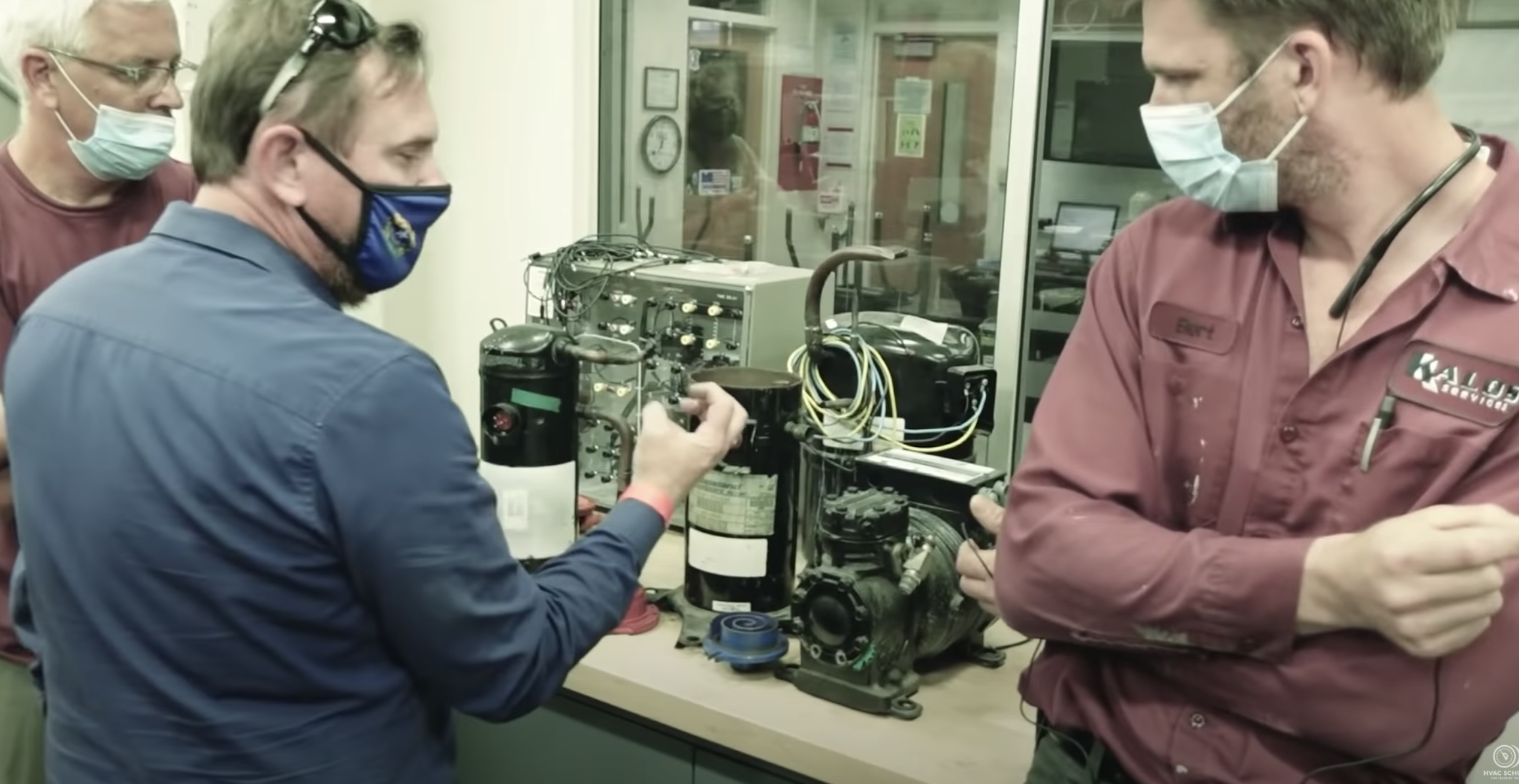A Compressor Diagnosis Scenario w/ Ty Brannaman
June 21, 2021


When a compressor shorts, the resistance will be low, and the electricity will move from line 1 to line 2 so quickly that it trips the breaker. Before making a hasty diagnosis, it is best practice to confirm a short by ohming out your compressor with your meter. The resistance will read much lower than normal. Then, you can be sure that the compressor is shorted.
Grounding out is a possible cause of a shorted compressor. You can tell that compressor is grounded out when electricity flows from one of the lines to a piece of metal. In a grounded compressor, the electricity shortcuts to the metal casing, not the windings. When that electricity flows too quickly, the windings get too hot. The varnish on the winding bakes off and allows the electricity to flow faster and get even hotter. It’s a surefire recipe for a shorted compressor.
You can also confirm a shorted compressor by turning the unit on without the compressor and seeing if the breaker trips. If the other components turn on without the breaker tripping, you can confirm that the compressor is the culprit.
Burnouts are another cause of compressor failure. The refrigerant or oil quality can tell you if you’re dealing with burnout. You can typically sniff for a pungent odor to tell if there was a refrigerant or oil burnout.
If you have an iPhone, subscribe to the podcast HERE, and if you have an Android phone, subscribe HERE.
Check out our handy calculators HERE.
Comments
To leave a comment, you need to log in.
Log In